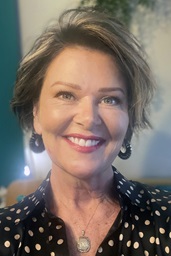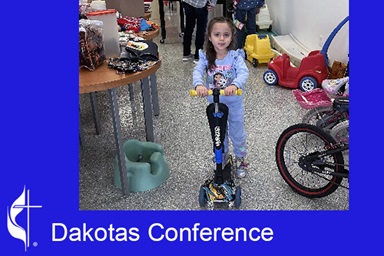- The Huruma UMC outreach program offers a bereavement ministry, fitness and running groups, and health-and-wellness opportunities for more than 15 cancer patients.
- The goal is to create sustainable cancer awareness and management support within the Mathare Valley slums.
- Even in the midst of COVID-19, patients and their families receive meals and other vital support.
Members of Huruma United Methodist Church are providing help and hope to people living with cancer in Nairobi’s slums.
The church’s free community home-care program focuses on strengthening end-of-life care and enhancing quality of life for underprivileged people who have no primary caregiver. Most have life-limiting or life-threatening illnesses.
Despite recent growth in home-based care in Kenya, the number of terminally ill people who live alone at home and without a caregiver is growing. This is exerting pressure on the stretched resources of palliative-care services provided by the government.
Currently, the church ministry serves up to 15 cancer patients. Among them is Agnes Nekesa, a Ugandan by birth, who is battling breast cancer.
When Nekesa was 9, a businesswoman brought her to Nairobi to serve as a domestic worker. Suffering at the hands of her employer, Nekesa opted for marriage at an early age and gave birth to two sons who became street boys due to poverty. Nekesa, now 45, lives in the Kiamaiko area, one of Nairobi’s urban informal settlements where poverty and a lack of basic amenities threaten a stable livelihood.
A single mother with no family and friends around to help her, Nekesa is grateful for the support she receives through the Huruma United Methodist Church patient-outreach program. She credits it with strengthening her faith. While she once had doubts about God, she said, she now feels peace about her diagnosis.
For her, the home-care ministry has proved life changing. She said it defines the real mission of the church: to respond to the needs of the sick.
“We attend church and receive emotional support from our church leaders,” Nekesa said. “We continue to go to church because we want to live (and) because of the social atmosphere, to help us maintain a good attitude and keep our faith strong.”

Huruma member Francis Mallo said, “When a church member is diagnosed with cancer, we have a unique opportunity to demonstrate Christ's love by collaborating to fulfill emotional, physical and spiritual needs. Ministers, deacons, friends and acquaintances all have a role to perform.”
Irene Wambui, 59, said the care is even more important during the COVID-19 pandemic.
“Hope is all we need,” she said. “I find spiritual support and the home-care program comforting during these difficult days, where patients, especially those with underlying conditions such as cancer, are under stress due to their vulnerability to COVID-19.”
Nancy Atieno, a cancer survivor and a Huruma member, shared how the church has served cancer patients and their families during the pandemic.
“For almost eight months,” she said, “my family received meals three times each week. That's around 100 meals. Our church's coordinator established a cycle of church members and other friends and neighbors to help us put a meal on the table.”
The Rev. Davies Musigo, Huruma senior pastor, said the church needed to establish a holistic strategy for improving home-based care in Nairobi.
“Our goal was to create a fully established and effective home-based care system to give terminally sick individuals hope and a real possibility of recovery,” he said. “The problem in front of us was how we could mobilize resources and everything else through collaboration so that, in the end, more people might have access to home-based care.”
The outreach program offers a bereavement ministry, fitness and running groups, and a health-and-wellness ministry to cancer patients. The goal is to create sustainable cancer awareness and management support within the Mathare Valley slums.
The Rev. Wilton T. Odongo, Nairobi District superintendent, said the church provides an ideal setting to serve and support individuals battling cancer. “The church in Nairobi,” he noted, “strives to address the felt needs of cancer patients, offer psychological services and use the capacity of pastors to provide emotional support.”
One critical need is specialized training on providing support groups for cancer patients and their caregivers. Odongo cited a need for church leaders to be trained in areas like dealing with suffering, cancer prevention, alternative treatments, medical options and biblical integration.
“We rely on the faithfulness of our Savior as we seek to expand our support network to lessen the burden on our young congregation and allow more individuals to serve cancer patients,” he said.
Maiga is a communicator for the Kenya-Ethiopia Conference.
News media contact: Julie Dwyer at [email protected]. To read more United Methodist news, subscribe to the free Daily Digest.




